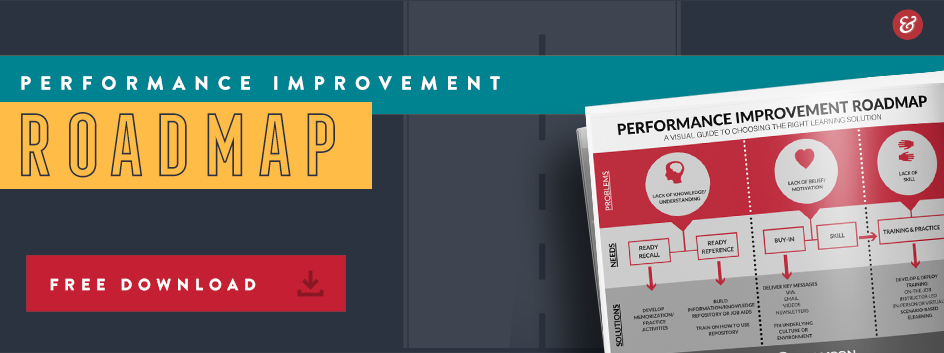Coaching Best Practices to Improve Performance & Engagement
There is a huge opportunity for organizations to take advantage of coaching between managers and employees that will significantly improve employee performance. Managers are often only seen as bosses, and not mentors. Employee coaching is an integral part of performance support and management because it empowers employees and is key to building and maintaining a self-motivated team. Topics that are typically covered in coaching methods include onboarding, time management, problem solving, goal setting, overcoming conflict, and performance. By coaching your teams, you can maximize employee potential and support the talent on your teams that puts them in a position to help your organization succeed.
Here are some statistics according to Deloitte:
- Organizations with managers who coach employees effectively and frequently improve business results by 21%.
- Employee performance improves by 20% when managers effectively couch their employees.
- If managers are fully prepared for coaching situations, organizations increase their effectiveness for training by more than 40%.
Unavoidably, there is a growing need in today’s business world that requires organizations to consistently improve employee productivity and performance. Sure, you could upskill and reskill your teams, but coaching is becoming more prevalent, and the results speak for themselves. The ultimate goal of utilizing a coaching approach is to work collaboratively with your employees to resolve productivity issues and improve the performance of individual employees throughout an organization.
Where to Start with Employee Coaching
A lot of managers struggle with this approach. Although they might think they are coaching their employees, they are just simply telling them what to do. Keep in mind that the better you coach, the more prepared your employees will be to achieve goals set in place for them. Effective coaching not only assists in guiding employees down the right path, but also promotes unbiased ideas and collaboration between departments to find solutions to all types of problems. Your employees and your teams will feel empowered to act dynamically through relationships built on trust and integrity. Below you will find some tips on focus areas for your employee coaching programs:
- Great questions lead to great answers. Enable the coaching process by encouraging conversation with your employees. Managers who coach effectively actively encourage their employees and create solutions to help their teams succeed.
- Every employee will require a different coaching style. Make sure to tailor your approach for each individual and be open to employee ideas. Listening to employees is an essential part of coaching.
- Coaches need to focus outwardly for continued motivation, as coaches are also motivated by the success of their teams. Failure will happen, and how coaches respond is what will really make the most impact. Encourage employees to consider what they learned, how to improve, and how to stay motivated toward achieving their goals.
- Coaches need to be prepared with highly developed communication skills along with emotional intelligence. When prepared for coaching, questions will guide conversation, not directive. Employees learn and grow by uncovering the answers to their questions on their own.
- Employees need constructive criticism from their managers and coaches, but do not always receive it. Employees want to know how their performance shapes up, and whether they are doing well or need improvement. Make sure to set aside time to provide this feedback and use 1:1 sessions regularly.
- Managers need to be empowered to promote learning and work to further develop their employees. Lead from the top down. Confidence drives employees to perform better, and those who feel supported and encouraged will achieve their goals and improve performance. Consider recognizing employees for improved performance or additional effort put into their roles.
- Employees will always learn best by doing. Take advantage of any coaching opportunities when they exist and encourage employees to learn from one another. Again, no two employees are alike and collaborating with manager and fellow coworkers will bring new possibilities and create a more unified workplace.
There are vital components of creating an effective coaching program for your employees. In addition to the above recommendations, you will want to align all your coaching efforts with your organization’s core values. After all, coaching your teams it designed to help your organization achieve company-wide goals. Sure, you could give everyone the same step-by-step instructions, but coaching does not work that way. You want to tailor your coaching approach to each individual employee to make sure it is most effective. Some employees will need more support than others. Keep in mind that some employees do best with hands-on approaches, while some employees may be most effective with visual or auditory tactics. Coaching is as much of an art as it is a science.
Be a Coach, Not a Boss
Great managers help employees enhance their skills while also improving weaknesses. Employees will always remember the leaders who helped them personally develop more than leaders who did not. Strong managers will celebrate success, listen to employees, empower employees, and trust employees. So, to be frank, great bosses are essentially more like coaches and less like bosses. Every good coach’s job is to encourage, support, and motivate their teams. The right coaching, at the right time, plays a holistic and critical role for organizations striving for higher engagement, productivity, and collaboration from employees. It is pretty common that managers leave feedback and performance critiques for annual reviews. My recommendation? Do not do that. This might give your employee a quick assessment, but it is not really helping to develop them into better employees. Ongoing and consistent feedback through coaching methods is a key to higher performance.
As a manager, and more importantly as a coach, you will have the greatest influence on your employees compared to the rest of the organization. If you want more engagement and increased performance, take a look at where you can help your employees improve. Engaged employees will consistently outperform the rest.
Continue reading

Dashe joins ttcInnovations
Learn More
Embracing the Future: Early Adopters of Generative AI for Learning
Learn More
Four Areas To Consider When Designing Accessible Training
Learn MoreCommitted to
finding solutions

